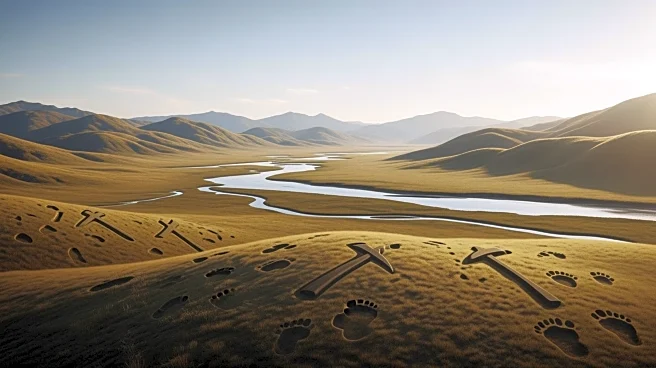What's Happening?
A study published in PLOS One reveals that Neanderthals and early modern humans significantly influenced Europe's ecosystems long before agriculture. Using computer simulations, researchers found that human activities like burning vegetation and hunting
large herbivores altered vegetation patterns and landscape openness. The study challenges the notion that humans had little environmental impact before farming, showing that early populations actively shaped their surroundings.
Why It's Important?
The findings redefine the understanding of human ecological impact, suggesting that the human footprint on landscapes is a natural feature of our species. This research provides insights into the long-term interactions between humans and their environment, informing current discussions on sustainability and conservation. By recognizing the historical role of humans in shaping ecosystems, policymakers can better address contemporary environmental challenges.
What's Next?
Future research may compare regions like the Americas and Australia to explore the extent of ancient human impact on landscapes. The study's methodology could be applied to other areas to understand the global influence of early human activities. These insights may guide conservation efforts and inform strategies for managing modern ecosystems.
Beyond the Headlines
The study highlights the deep-rooted relationship between humans and their environment, emphasizing the need for sustainable practices that acknowledge historical interactions. It also raises questions about the ethical implications of human-induced environmental changes and the responsibility to preserve natural landscapes.















